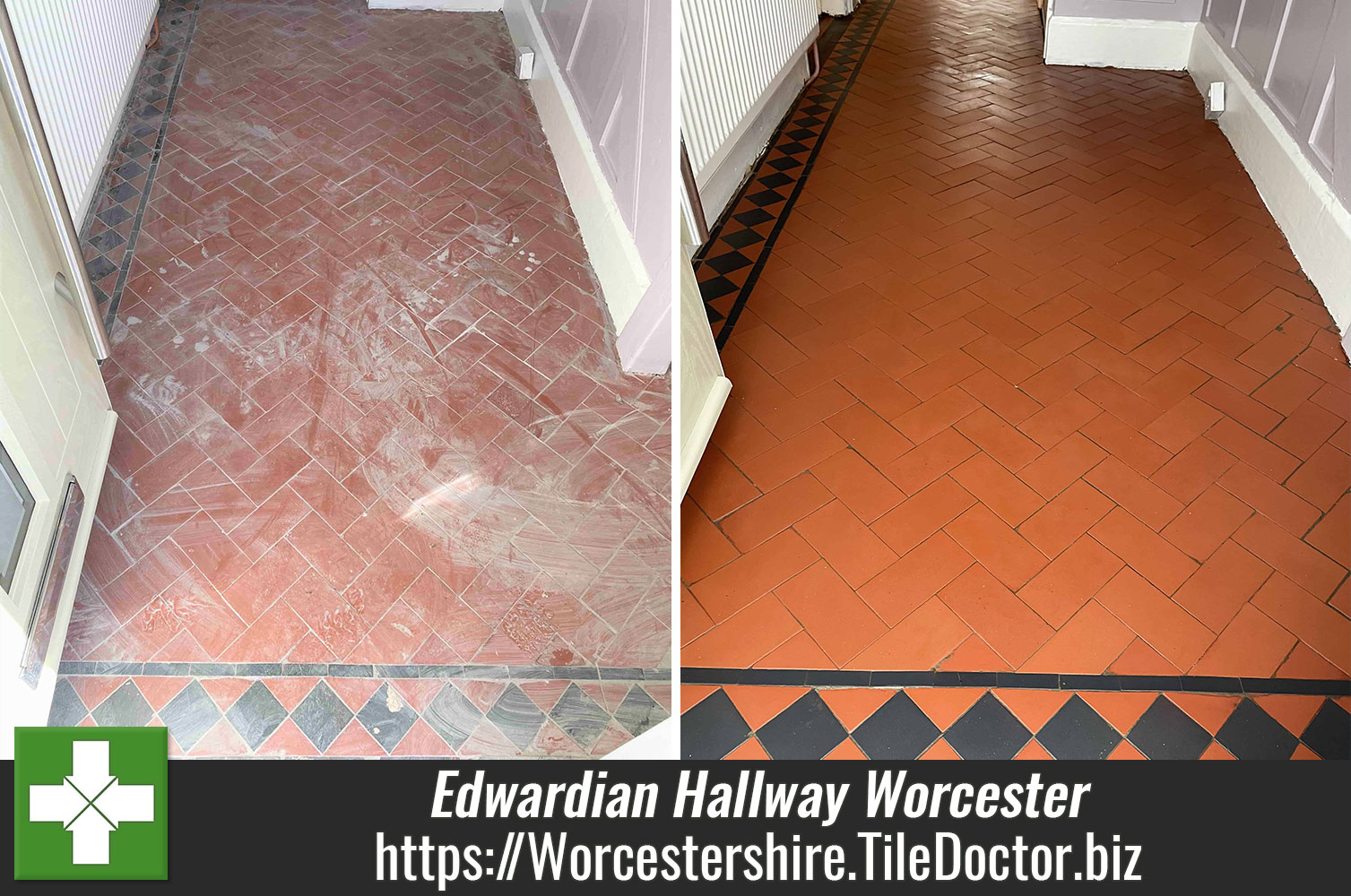Using Acid Gel to counter Efflorescent Salts on a Edwardian floor in Worcester
This Edwardian property in Worcester laid in a herringbone tile pattern had been subjected to substantial renovations resulting in a crew of builders treading dirt and building materials through the Victorian tiled hallway. The tiles were now looking very dark and grubby with straining from what cement or plaster. Someone had tried to wash the floor but having realised it wasn’t as easy as it looked reached out to us to have it done professionally.

I decided the best thing to do was to give the tiles a deep clean to remove the old sealers and dirt and then to apply a fresh sealer that would put some life back into the tiles. My quote was accepted and a date agreed for my return and more importantly once all the builders had gone.
Renovating an Edwardian Tiled Hallway Floor
To clean up the tiles, remove the staining and strip off the old sealer I sprayed Tile Doctor’s Remove and Go onto the tile, this product is a multi-purpose stripper formulated with a long dwell-time to remove most sealers, epoxy grout haze, adhesives and even paint.
After leaving it to soak in for ten minutes the Remove and Go had broken down the soiling and was ready to be scrubbed in. I use a Black scrubbing pad to do this fitted to a rotary buffing machine and adding water along the way to help lubricate the process. Once done the soil generated was extracted using a wet vacuum. This process was then repeated until I was satisfied.
Old Victorian floors don’t have a damp proof membrane installed under the floor so the next step was to treat any dormant alkaline salts in the floor using Tile Doctor Acid Gel. These can materialise as white spots on the tiles as the moisture rises through the tile and evaporates on the surface leaving the salt behind. The process is known as efflorescence and you can neutralise the salts by giving the floor an acid wash. The Acid Gel is scrubbed into the tiles as before and then rinsed off with water and then extracted with a wet vacuum.
Once I was done the floor was looking so much better and after more drying with the wet vacuum, I was able to leave it overnight to dry off fully.
Sealing a Victorian Tiled Hallway Floor
Returning three days later, I took some moisture readings with a damp meter first. The readings were fine so satisfied that the tiles were sufficiently dry, I began applying what Tile Doctor Colour Grow. This product was chosen for its ability to improve the colours in the tile and because its fully breathable which is an important consideration when sealing floors that don’t have a damp proof membrane.

As you can see from the photos, the floor looks so much fresher and 100% cleaner, not bad for a hundred-year-old floor.
Before leaving I took time to discuss how to look after the floor including the importance of avoiding harsh tile cleaning products on the floor as they can reduce the life of the sealer. For the regular cleaning of sealed Victorian tiles, I recommend Tile Doctor Neutral Cleaner.
Source: Victorian Tile Cleaning and Sealing Service in Worcester
